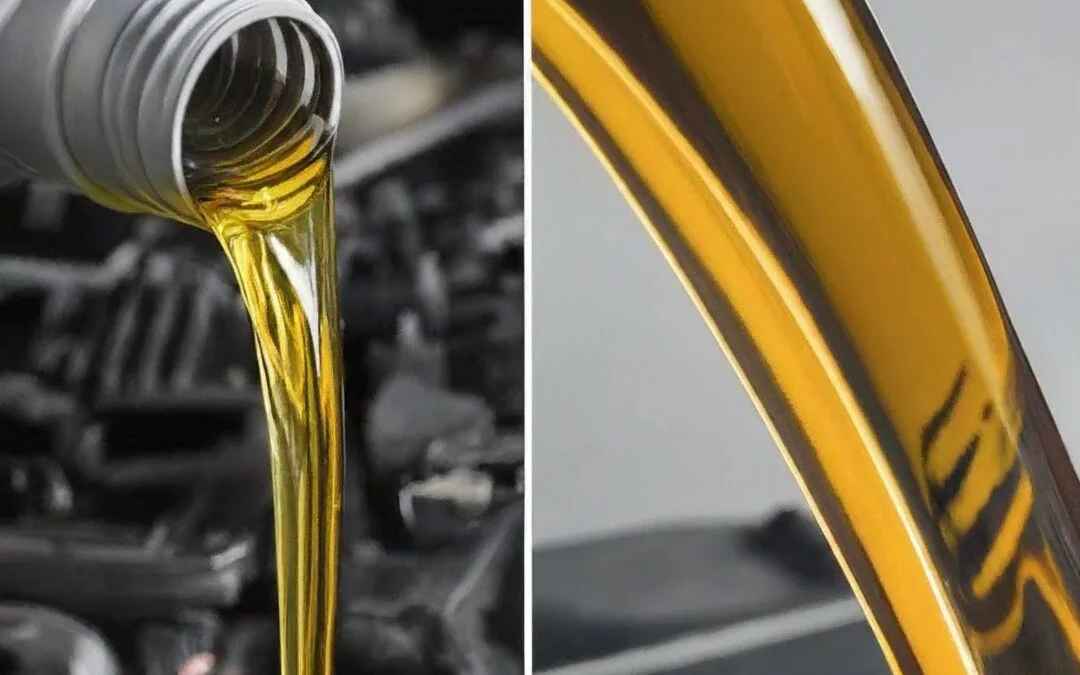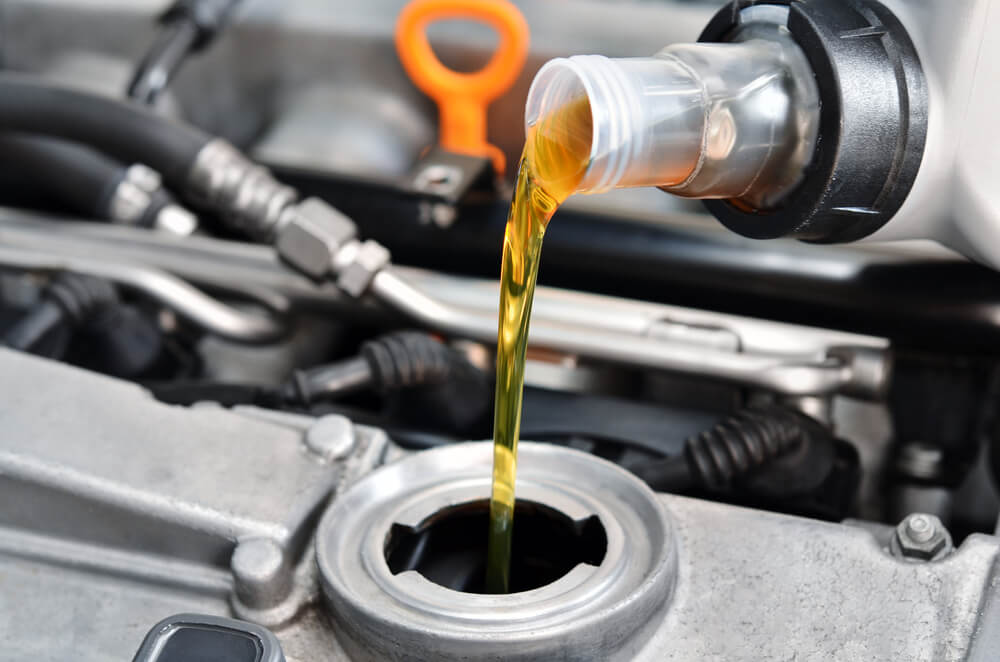Tittle :What are the primary function of motor oil?
Introduction:
This essential fluid plays a multifaceted role in preserving the health and longevity of your engine. From reducing friction to keeping temperatures in check, motor oil is a silent guardian that tirelessly works behind the scenes to keep your vehicle running smoothly. In this blog, we will delve into the primary functions of motor oil and unravel the critical roles it plays in the heart of your vehicle’s powerplant. Understanding the significance of motor oil is not only important for automotive enthusiasts but for anyone who relies on a car to get from point A to point B. So, let’s roll up our sleeves and dive into the world of motor oil, uncovering the secrets that make it an indispensable asset to our automotive journeys.
What is motor oil?
Motor oil is a fundamental component of any internal combustion engine. It serves as a vital lubricant, ensuring the smooth operation of various engine parts, and plays a critical role in maintaining the engine’s overall health and performance.
Motor oil is a carefully formulated blend of base oils and additives. It works as a lubricant by reducing friction between moving parts within the engine. This friction reduction is essential because the engine’s components are constantly in motion, and without proper lubrication, they would wear out quickly. As motor oil circulates throughout the engine, it forms a protective barrier that minimizes the wear and tear, extending the engine’s lifespan.
In addition to lubrication, motor oil also aids in cooling the engine. Engines generate an immense amount of heat during operation, and excessive heat can lead to engine damage. Motor oil helps dissipate this heat by carrying it away from the hottest parts of the engine, where it can be released into the atmosphere. This function helps maintain the engine’s temperature within safe operating limits.
Cleaning is another crucial function of motor oil. As it circulates, it collects and suspends contaminants, such as dirt, debris, and combustion byproducts, preventing them from settling on critical engine components. The oil filter further helps in this process by capturing these contaminants and preventing them from re-entering the engine. Clean motor oil promotes engine longevity and ensures that the engine continues to run efficiently.
Motor oil also acts as a sealant. It helps maintain the integrity of gaskets and seals, preventing oil and coolant leaks. This not only ensures that the engine operates smoothly but also prevents potential environmental contamination.
Furthermore, motor oil serves as a corrosion prevention agent. It forms a protective coating on engine parts, guarding them against rust and corrosion. This protection is vital for preserving the engine’s integrity and longevity.
The viscosity of motor oil, or its thickness, plays a significant role in engine performance and fuel efficiency. The right viscosity is crucial for proper lubrication and temperature regulation. Choosing the correct motor oil viscosity can help optimize fuel efficiency and engine performance.
Lubrication: The Vital Engine Elixir
Lubrication keeps our engines running smoothly and efficiently. In the complex dance of moving parts within an engine, lubrication takes center stage, reducing friction and preventing wear and tear, ultimately extending the life of the engine.
At its core, lubrication involves the use of a specialized fluid, typically motor oil, to coat and separate moving engine components. This thin, protective layer minimizes direct contact between metal surfaces, preventing them from grinding against each other. Friction reduction is critical because, without it, the intense heat generated by this constant metal-on-metal contact would rapidly deteriorate engine components, leading to damage and inefficiency.
Lubrication doesn’t stop at friction reduction; it also plays a significant role in temperature regulation. Engines produce a substantial amount of heat during their operation, which, if not managed properly, can lead to overheating and potential engine damage. The lubricating oil circulates throughout the engine, absorbing and carrying away excess heat from critical components. This heat dissipation process ensures that the engine remains within its safe operating temperature range.
In addition to friction reduction and heat dissipation, lubrication is crucial for maintaining the engine’s efficiency. As the lubricating oil prevents excessive wear and tear, it keeps the engine performing optimally, preserving its power and reliability. Moreover, it contributes to fuel efficiency by reducing the energy losses associated with friction and heat.
Regular oil changes are essential to maintain effective lubrication. Over time, motor oil can break down and become contaminated with impurities. This necessitates periodic oil changes to ensure that the engine continues to receive the high-quality lubrication it needs.
In the world of engines, lubrication is the unsung hero that ensures longevity, efficiency, and smooth operation. Its ability to reduce friction, dissipate heat, and prevent wear and tear makes it a fundamental aspect of proper engine maintenance. So, the next time you start your car, remember that beneath the surface, the magic of lubrication is working tirelessly to keep your engine in top form.
Engine Cooling: How Motor Oil Keeps Your Engine Chilled and Thriving
The heart of any vehicle, the engine, is a symphony of precisely timed explosions and mechanical movements. While this symphony powers your vehicle, it also generates an enormous amount of heat. Excessive heat can be a mortal enemy to engines, causing damage and reduced performance. This is where the often-underappreciated function of engine cooling by motor oil comes into play.
Motor oil is not just a lubricant; it’s a heat manager. As your engine operates, it faces the challenge of balancing the intense heat generated by combustion with the need to maintain an optimal temperature. This is where motor oil becomes the unsung hero.
Here’s how it works:
- Heat Transfer: Motor oil circulates through the engine, absorbing heat from critical components like the cylinder walls, pistons, and bearings. As it carries this heat away, it prevents these components from reaching dangerously high temperatures, which can lead to wear and damage.
- Dispersing Heat: The motor oil then transports the absorbed heat to the engine’s oil cooler, where it is released into the atmosphere. This heat dissipation is crucial for keeping the engine within its safe operating temperature range.
Engine cooling by motor oil is not just a matter of convenience; it’s a fundamental necessity. Without proper heat management, engine components can warp, seize, or break down, leading to costly repairs or even engine failure.
Regular oil changes are essential to maintain effective engine cooling. Over time, motor oil can become contaminated, reducing its ability to manage heat. Fresh, clean oil is more efficient at absorbing and dissipating heat, ensuring that the engine stays cool under pressure.
In summary, while motor oil might seem like a simple fluid, its role in engine cooling is anything but basic. It’s a critical component in the battle against excess heat, protecting your engine and preserving its performance and longevity. So, the next time you start your car, remember that beneath the hood, motor oil is working tirelessly to keep your engine running smoothly and, most importantly, cool.
Cleaning by Motor Oil: Preserving Engine Purity
Motor oil does far more than just lubricate and cool your engine; it also plays a crucial role in keeping it clean and free from harmful deposits and contaminants. This often-overlooked function of cleaning by motor oil is essential to maintaining the longevity and performance of your vehicle’s powerplant.
Here’s how it works:
- Contaminant Capture: As motor oil circulates throughout the engine, it acts as a magnet for dirt, debris, and combustion byproducts. These unwanted elements are suspended in the oil, preventing them from settling on critical engine components. The oil essentially entraps these particles, safeguarding the engine from damage.
- Filter Assistance: In the cleaning process, the oil filter is a valuable ally. It captures and traps the contaminants that the motor oil collects, preventing them from re-entering the engine. This teamwork between the oil and the filter ensures that the engine remains clean and free from harmful impurities.
- Promoting Engine Longevity: Clean motor oil is not just a nicety; it’s a necessity for the health of your engine. By preventing deposits and contaminants from accumulating on sensitive engine parts, it extends the life of these components and maintains the engine’s efficiency.
Regular oil changes are essential to maintain effective cleaning by motor oil. Over time, motor oil can become saturated with impurities, diminishing its cleaning capacity. Fresh oil ensures that the engine continues to operate in a clean environment.
Sealant by Motor Oil: Guarding Engine Integrity
While motor oil is primarily known for lubrication and cooling, its role as a sealant in your engine is equally vital and often overlooked. It acts as a silent guardian, maintaining the integrity of gaskets and seals, and preventing potentially damaging oil and coolant leaks.
Here’s how it works:
- Gasket Integrity: Your engine contains numerous gaskets and seals that prevent fluids from leaking and maintain the separation between various components. Motor oil’s sealant properties help these gaskets remain flexible and effective over time. It creates a barrier, preventing them from becoming brittle or cracking, which could lead to leaks.
- Leak Prevention: The engine operates under significant pressure and temperature variations. These conditions can put a strain on gaskets and seals, making them susceptible to wear and tear. Motor oil, with its sealant qualities, helps fill in the minute imperfections that can develop in these components over time, effectively preventing oil and coolant leaks.
By serving as a sealant, motor oil not only ensures the engine’s reliable performance but also minimizes the risk of environmental contamination and helps maintain the engine’s overall cleanliness.
Regular oil changes are necessary to sustain the sealant capabilities of motor oil. As oil ages, it can lose some of its viscosity and sealant properties, making it less effective at protecting gaskets and seals.
In summary, motor oil’s role as a sealant is a critical yet often underestimated function. It safeguards your engine’s integrity by preventing leaks and ensuring that gaskets and seals continue to perform their essential roles. The next time you hit the road, remember that your engine is not just powered by motor oil but also protected by it, ensuring a smooth and leak-free journey.
Corrosion Prevention by Motor Oil: Safeguarding Engine Longevity
While motor oil’s primary function is to lubricate and cool, it also plays a vital role in corrosion prevention, ensuring that your engine components remain free from rust and deterioration. This often underappreciated aspect of motor oil maintenance is crucial for preserving your engine’s performance and lifespan.
Here’s how it works:
- Protective Coating: Motor oil forms a thin, protective film on engine components, effectively shielding them from environmental elements and moisture. This barrier acts as a barrier, keeping corrosive agents at bay and reducing the risk of oxidation or rust.
- Engine Longevity: Corrosion can weaken engine parts, reducing their structural integrity and leading to premature failure. By inhibiting the development of rust, motor oil extends the lifespan of engine components, allowing them to function optimally for longer.
- Environmental Defense: Engines are exposed to a wide range of environmental conditions, from temperature fluctuations to moisture. Motor oil’s corrosion prevention properties create a safeguard against these elements, ensuring that your engine remains durable and reliable.
Over time, motor oil can become contaminated with impurities, diminishing its ability to form a protective barrier. Fresh, clean oil is more efficient at preventing corrosion and maintaining engine longevity.
Viscosity and Fuel Efficiency: The Delicate Balance in Your Engine
Viscosity, an often-underestimated property of motor oil, holds a key role in determining your vehicle’s fuel efficiency and overall performance. It’s the measure of a fluid’s resistance to flow, and when it comes to motor oil, finding the right balance is crucial to ensure your engine operates at its best while also sipping less fuel.
Here’s why viscosity matters:
- Lubrication and Friction: Viscosity directly impacts how well motor oil can lubricate engine components. An oil with the correct viscosity creates a reliable lubrication film, reducing friction and wear. When the viscosity is too high (thick), it can strain the engine by creating excessive drag. On the other hand, if it’s too low (thin), it might not provide adequate protection. The right viscosity, therefore, minimizes energy losses due to friction, contributing to fuel efficiency.
- Temperature Regulation: Viscosity also affects how well motor oil can manage engine temperatures. In cold conditions, you want the oil to flow easily to provide quick startup lubrication. In hot conditions, it should resist thinning to maintain its protective properties. The correct viscosity ensures your engine operates optimally across a range of temperatures.
Choosing the right motor oil viscosity for your vehicle can significantly impact fuel efficiency. While the vehicle manufacturer’s recommendations are essential, some factors can influence your decision, including your climate, driving conditions, and the age of your engine.
Remember, the right balance of viscosity not only enhances fuel efficiency but also contributes to the overall well-being of your engine. Regular oil changes, using the recommended oil viscosity, ensure that your engine continues to perform efficiently and saves you money at the pump while extending its longevity. So, the next time you consider your vehicle’s performance and economy, don’t overlook the role that viscosity plays in this delicate balancing act within your engine.
Just look at the below video for all your question about the functions of your motor oil and get the gist of above discussion.
Conclusion:
Primary functions of motor oil including lubrication, cooling, cleaning, sealing, and corrosion prevention, work harmoniously to ensure your engine’s well-being. It’s the unsung hero beneath the hood, quietly safeguarding your vehicle’s performance and longevity. Regular maintenance, including timely oil changes with the right viscosity, is the key to harnessing the full potential of motor oil and ensuring a smooth and efficient ride. So, while it may remain unseen, motor oil remains an essential ally in your automotive journey.
Useful link:
https://synthetic-oildepot.com/a-beginners-guide-to-motor-oil-what-you-need-to-know-part-2/
FAQs About the Primary Function of Motor Oil
1. What is the primary function of motor oil?
- The primary function of motor oil is to lubricate, reducing friction between engine components, which prevents wear and tear.
2. How does motor oil contribute to engine cooling?
- Motor oil dissipates heat generated during engine operation by absorbing it from hot engine parts and transferring it to the oil cooler where it’s released.
3. Does motor oil play a role in cleaning the engine?
- Yes, motor oil helps keep the engine clean by suspending contaminants and preventing sludge and deposits from forming on engine components.
4. How does motor oil act as a sealant in the engine?
- Motor oil maintains the integrity of gaskets and seals, preventing oil and coolant leaks by filling in any imperfections that develop over time.
5. What is the role of motor oil in corrosion prevention?
- Motor oil forms a protective coating on engine components, guarding against rust and corrosion, thus extending the engine’s lifespan.
6. How does viscosity affect fuel efficiency in motor oil?
- Viscosity, the thickness of motor oil, influences its ability to reduce friction and manage engine temperature. The right viscosity contributes to fuel efficiency.
7. How often should I change my motor oil to maintain its primary functions?
- It’s recommended to change your motor oil as per your vehicle manufacturer’s guidelines, typically every 3,000 to 5,000 miles, or as indicated by your vehicle’s oil life monitoring system.
8. Can I use any motor oil viscosity in my engine?
- No, it’s essential to use the motor oil viscosity recommended by your vehicle manufacturer to ensure proper lubrication and temperature regulation.
9. What happens if I don’t change my motor oil regularly?
- Without regular oil changes, motor oil becomes less effective at performing its primary functions, which can lead to engine damage, decreased performance, and reduced fuel efficiency.
10. How can I choose the right motor oil for my vehicle?
- To choose the right motor oil, consult your vehicle’s owner’s manual or the manufacturer’s recommendations. Factors such as climate, driving conditions, and your engine’s age may also influence your choice.





Leave a Reply